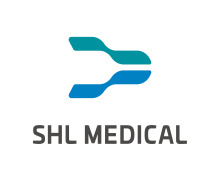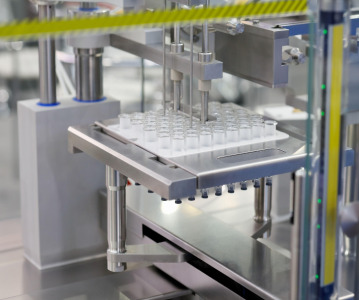Beyond the platform – applying modularity to autoinjector development

SHL’s Molly® and Molly® 2.25 mL autoinjectors are built upon a proven modular platform technology to support shorter development timelines and increased flexibility in device design and production.
Injectable drug delivery systems have become an important and integral part of modern medicine, owing to various key drivers such as human health and well-being, drug development and delivery, as well as patient safety and usability. Injectable therapy has at the same time been met with an increased focus on self-administration, mainly due to the added benefit of patient convenience, but also due to the growing pipeline of biological and biosimilars drugs.
For the past decade, preconfigured or platform self-injection devices such as autoinjectors have been heavily sought after by medical device developers due to their ability to meet the pharma and biopharmaceutical industry’s need to take their drugs to clinic and to market at comparatively shorter timelines and lower costs. Despite these advantages, conventional platforms do have some disadvantages. For instance, a clear-cut trade-off for fast development time entwined with platform devices is the loss or diminishing level of flexibility to device customizations, whether it be in accordance with the customer, primary container, branding, or patient requirements. Yet with the rising need for products to offer design differentiation for brand and usability requirements, devices are increasingly expected to offer flexibility beyond the confinements of a platform product.
This is where the addition of modularity is key.
The concept of modularity stems from the general attempt to operationalize and understand complex systems. In a modular platform, the product is divided into modules that can be swapped with other elements of different sizes or functionality to create variants.1 Asset flexibility, cost of goods, and investment deferment are just some of the key drivers behind modular systems.2 When done correctly, modularity supports standardization, repeatability, as well as customization.
In autoinjector development, this translates into the opportunity to leverage all the advantages of a traditional platform device technology while still allowing for various customizations in the device’s design and development. The result is a flexible platform – or a modular platform – that can meet the requirements for industrial design customization and production scaling. In other words, modularity offers double competitiveness to organizations in the form of product cost-effectiveness and freedom of customization.
SHL Medical’s Molly® and Molly® 2.25 mL autoinjectors are built upon a modular platform technology that supports this duality in standardization and customization. First introduced in 2010, the Molly® platform has supported the development and regulatory approval of 17 combination products around the world.3 And it is upon these successes and wealth of experience that Molly®’s modularity is established.
Molly®’s technology is modular in that both the front and rear sub-assemblies comprise intricately designed parts that are configured to allow for an appreciable level of freedom for customization while maintaining its core drug delivery mechanism. For instance, in addition to changing the color of the cap, needle cover, and plunger rod, industrial design customizations in the device’s body and cap are also possible. This allows pharmaceutical companies to introduce unique designs not only for branding and market differentiation, but also for patient distinguishability and usability. Compared to creating a completely bespoke autoinjector, customizing an established platform supports the simplification of project processes and optimization of timelines4.

Examples of commercialized Molly® projects with various levels of design customization
For device projects based on the Molly® technology, modularization is not only applied to the device design, but also to the development infrastructures that support it. For example, SHL’s automated assembly and testing equipment platforms also utilize modular infrastructures that can be adjusted to process a mix of different Molly® designs – or several versions of the same Molly® design – at speed, on a flexible scale, and with consistent quality. This complementation ensures that customizations in the device design can be assembled and tested through common machines that feature interchangeable tools and stations corresponding to the device’s characteristics. Moreover, by reusing much of the machinery to assemble and/or test different injection devices, emissions from producing and operating individual pieces of machinery are reduced, increasing the overall sustainability of the final product.
Molly®’s customer-focused model has made it SHL’s most versatile offering to date. Molly® is currently supporting around 14 molecular entities approved for a range of disease areas. This includes one of the world’s first regulatory approved autoinjectors in the high-volume (≥ 2.0 mL) range, as well as a recent combination product addressing obesity. But the true value of Molly® lies in its flexible design and development model that will continue to scale in response to industry advances, such as in data science and future device add-ons that live within a reformulated digital health ecosystem.
For more information on the Molly modular platform technology, please visit the Molly® website
References:
- Zha XF, Sriram RD, “Platform-Based Product Design and Development: A Knowledge-Intensive Support Approach.” Knowledge-Based Systems, vol. 19, no. 7, pp. 524–543, 2006.
- Hernandez R, "Modular Manufacturing Platforms for Biologics". BioPharm International, 28 (5), 2015.
- Internal data as of July 2021.
- Wild L, Fuensalida Pantig GR, “The “Customisable Platform” Paradox”. ONdrugDelivery, Issue 113 (Oct 2020), pp 80–85.

Related News
-
News CPHI Podcast Series: How to build a successful CDMO partnership
The latest in our series for the CPHI Podcast Series focuses on partnerships, specifically those between pharma companies and CDMOs. Expert Christine Fürst from Vetter comments on how to make successful and lasting partnerships in the industr... -
News How GLP-1 agonists are reshaping drug delivery innovations
GLP-1 agonist drug products like Ozempic, Wegovy, and Mounjaro have taken the healthcare industry by storm in recent years. Originally conceived as treatment for Type 2 diabetes, the weight-loss effects of these products have taken on unprecedented int... -
News 2025 Pharma Trends Outlook: Collaborative Pharma – A New Era of Supply Chains
A new year, a new Pharma Trends Outlook report! The 2025 Pharma Trends Outlook report examines key changes expected in the pharmaceutical industry for the coming year, particularly in regards to the supply chain. -
News Women in Pharma: Our hopes for 2025 and beyond
Our last instalment for 2024 of the Women in Pharma series brings you messages direct from the Informa Markets CPHI team as they discuss the advice and insights they have carried throughout their roles working at CPHI, and what they hope to see for the... -
News Closing 2024 with Editors' picks of top articles from the past year
Coming to the end of 2024 and it’s certainly been a busy year, for CPHI and for the rest of the pharmaceutical and healthcare industry. Topics of conversation throughout the last 12 months have been varied, touching on the technical, to the polit... -
News Lessons from CPHI Milan 2024: Sunny Intervals for Pharma Manufacturing?
As the 2024 CPHI conference wrapped up in Milan, we caught up with L.E.K. Consulting – a global strategy consulting firm with deep expertise in pharma manufacturing – to discuss evolving market perspectives and business outlook. -
News CPHI Pharma Awards 2024: Meet the winners from the CPHI Celebration
This year we had a lot to celebrate, the 35th Anniversary of CPHI, and our esteemed award winners, of which we included two additional categories this year, the Future Leader award, and Woman of the Year award. -
News Women in Pharma: C-Suite Journeys in Leading Diversity
In this CPHI Milan special of our monthly series, we sit down with our panel of C-suite executives speaking on the ‘Leading with Diversity: The CEO Journey’ panel at this year’s show.
Recently Visited
Position your company at the heart of the global Pharma industry with a CPHI Online membership
-
Your products and solutions visible to thousands of visitors within the largest Pharma marketplace
-
Generate high-quality, engaged leads for your business, all year round
-
Promote your business as the industry’s thought-leader by hosting your reports, brochures and videos within your profile
-
Your company’s profile boosted at all participating CPHI events
-
An easy-to-use platform with a detailed dashboard showing your leads and performance



.png)



